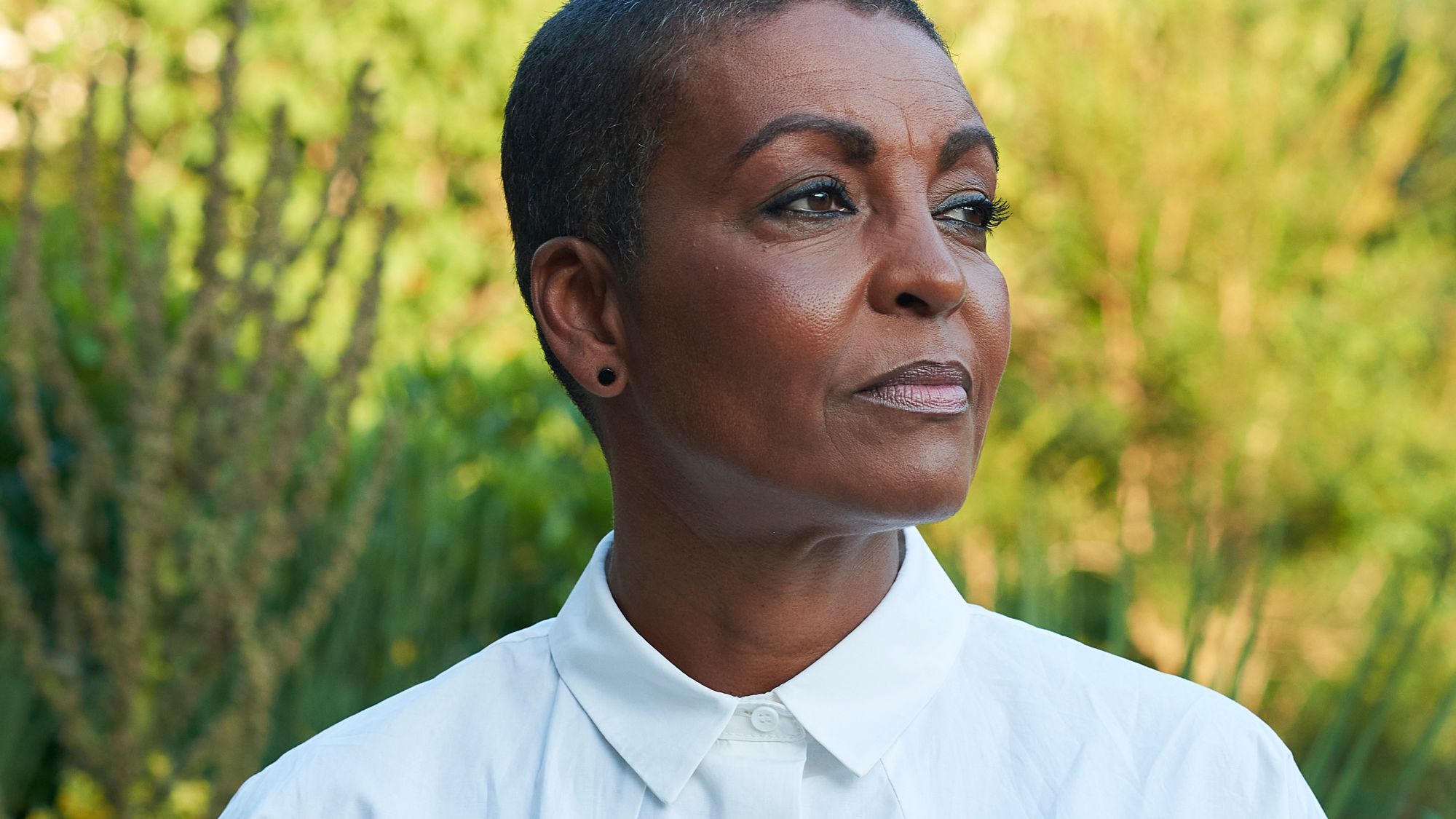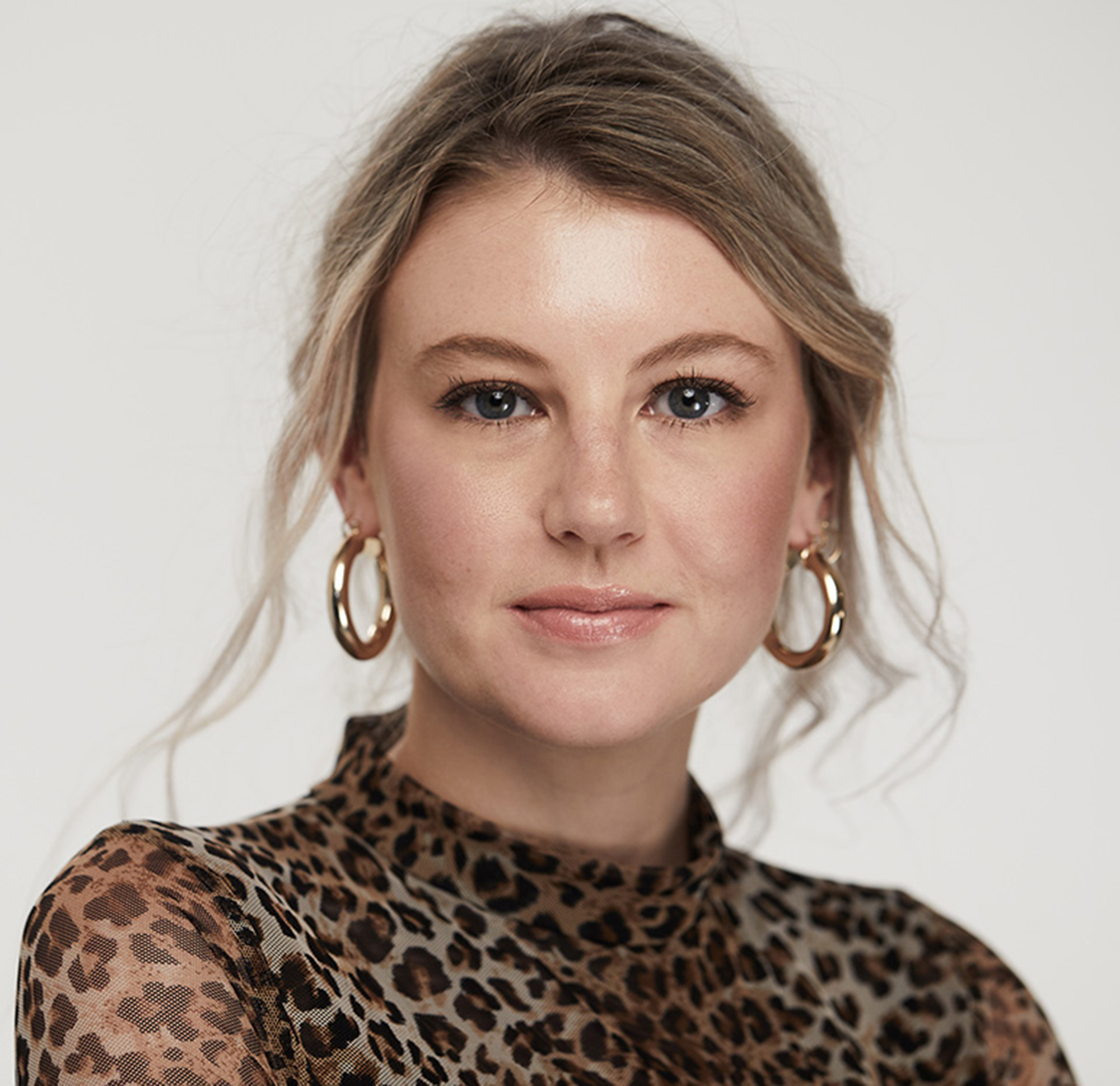Bridgerton’s Adjoa Andoh on why, when it comes to menopause, knowledge is power
“It needs to be talked about so that it can't be used to undermine women.”


Shannon Lawlor
You don’t have to have watched Bridgerton to know of Adjoa Andoh. Starring in one of Netflix’s biggest shows ever will, understandably, propel you into the limelight. But today, we’re not talking with Andoh about her role as Lady Danbury or even the highly anticipated release of season 3. Instead, we’re sitting down to talk all things menopause.
As No7’s menopause ambassador, Andoh wants us to know this isn’t your average celeb endorsement project (although she admits, of course, she does use and love No7’s Menopause Skincare Collection). “I don't do advertising stuff generally,” she caveats. This move for her isn’t about money or product, it’s about opening up conversation around a topic she feels needs more attention.
At 59 years old, Andoh is open about her experiences with perimenopause, menopause and post-menopause, revealing the thing that spoke to her most when the opportunity arose to work with No7 was the brand’s willingness to actually speak with women, take feedback on board and help shed light on the changes the body goes through. “Once you have the knowledge, you don’t give yourself such a hard time,” she says.
Sitting down with Senior Beauty Editor, Katie Thomas, here, Adjoa Andoh talks on her experiences of the stigma around menopause, discusses why open conversation on menopause in the work place could increase productivity and reveals the reasons why being armed with skin knowledge makes for a liberating menopause experience.
How did the menopause start for you?
"I would say, like most women, there was no starting date. Instead, it was more of an incremental shift. It was one that started with having very straightforward menstrual cycles and then the rhythm of them suddenly shifting. That was the early indication when I was in my late forties/early fifties. But the things I noticed more were the clichés you think aren’t true, but are—things like night sweats and erratic sleep. At a certain point you put all the dots together and think: So this is the menopause?"
How have you found your menopause journey so far?
"I do feel like we’re not well versed in our bodies and that things come upon women, which takes us by surprise. Particularly when it comes to menopause, we’re not prepped and no one wants to talk about it. There’s been a shame around it that implies when ‘the change’ happens, all bets are off, your life’s over and you’re a dried up husk. I think there’s something really fundamental and basic about writing women off once they’re no longer of childbearing value. It’s almost like saying because I’m not going to be giving anyone a baby anytime soon, I’ve lost all of my functions—my intellect, my curiosity, my appeal, my sexiness—it’s all gone because that was only there so that I could make babies. It’s not true. We don’t die at 60 anymore, there’s a whole load of life still to go.
"I suppose the biggest thing for me is just to say, it's just a change in my life, it’s just a new development. It’s going, this is the way I am and if you don't like it, go somewhere else. I'm not going to be anxious about who I am as a person anymore or whether I'm pleasing you, whether you think I'm suitable, good enough, or includable—I'm just gonna play on my own. I'm not going to be intimidated or squashed, or reduce myself in any way, I'm just going to embrace the whole of who I am. I think those sorts of changes also happen. "
Celebrity news, beauty, fashion advice, and fascinating features, delivered straight to your inbox!
Did you find that the menopause affected your work?
"[As actors] I think, generally, our work is affected just because of the preconceptions that people have about women who are older in terms of stories that are available to play. Although, I think that's starting to change now. Viola Davis is doing more work, and Leslie Manville is doing more work. People whose careers might have been written off are still working because life keeps going and life is still interesting.
"I've been pretty fortunate but I think just as women don't talk about menopause, we also still don't talk about childcare. There are all these things that go on in one's life, and everything needs to be taken into account. If I've been directing a show and someone's got [something going on with their kid] then I will tell them to come in when they can come in and we'll work around them. Why? Because that's part of life. I want a happy company of actors and other creatives, and if you're stressed about something that you should be dealing with, you're not going to work well.
"I just feel like we work well when we acknowledge everything that's going on. Everybody's going through the same shit, so why are we all in denial about it? We should be supporting each other to be productive by being responsive and caring. So, in terms of the menopause and post-menopause, I think that big wraparound care needs to be happening in our work life, just as much as it should be happening with caring for elders or caring for children, or having a health condition or whatever it may be. It may look like it's a barrier to our working sufficiently well, but actually, it's just a part of life and it just needs to be woven into the work/life balance, I think."
Did you notice any menopausal changes in your skin?
"I've always been a great fan of moisturising. If you are of African heritage and you don't moisturise your skin, you will be thrown out of the club. You can't leave the house with ashy skin, it's against the law. I've also been blessed with fantastic genes. But I think I have noticed, even though I moisturise, that I need to moisturise more. There's a certain elasticity in the skin that starts to roll back as you go through the menopause, which makes perfect sense because you're losing oestrogen and that takes some of the elasticity of your skin. For me, I've found more water, more sleep, and less sugar have been really helpful.
"What was really interesting to me about the new No7 range was that they bothered to spend time, over a number of years interviewing a huge cohort of women (of different races, different regions, different stages of menopause) to get their feedback on what they've noticed. It’s not a case of wanting to fight against a terrible thing that’s happening, it's just providing information. Once you have the information, you can choose how best you wish to address it. For me, a good moisturiser that's addressing the shifts in your skin is essential. I particularly like the No7 Menopause Skincare Nourishing Overnight Cream, £31.30."
Was there anything else that helped you through?
"I've had cancer, so the supplements that are available to most women who have gone through menopause to support the oestrogen quota in your body, which are supportive things, can also potentially support the return of cancer cells, so I can’t take that stuff. I couldn't take HRT (hormone replacement therapy), for example, and I couldn't take a homeopathic route or have red clover, but I do take sage which is fantastic. That's probably the only supplement I take in terms of something that's directly there to address menopause, although I do take other supplements like vitamin C and vitamin D. I'm vegetarian so I take vitamin B12 and black garlic—there's all sorts of things I take but they’re just to support my general well being. Although, I think when your body is shifting, you need to support your general well being."
Do you think women are armed with enough information on the menopause?
"No, I don't think we are. I don't think we factor it into the world. We think menopause is old. It's reduced. It's coming to the end of life. It's something you don't want to think about because you don't really think about your end when you're in the middle. But that's fiction because it is the middle for most women's lives. There's a whole chunk of decades still to go in which you can be embracing the freedom of menopause and embracing your confidence in who you are as a person.
"It needs to be talked about so that it can't be used to undermine women in the workplace, and undermine their sense of beauty, their own agency in the world, their own intellectual curiosity or just their general fabulousness. I think women are hungry to know, and actually men should be hungry to know as well so that everybody is on the same page about what’s happening."

Katie Thomas is the Senior Beauty Editor at Marie Claire UK. With over 10 years of experience on women's luxury lifestyle titles, she covers everything from the best beauty looks from the red carpet and stand out trends from the catwalk, to colonic irrigation and to the best mascaras on the market.
- Shannon LawlorExecutive Beauty Editor